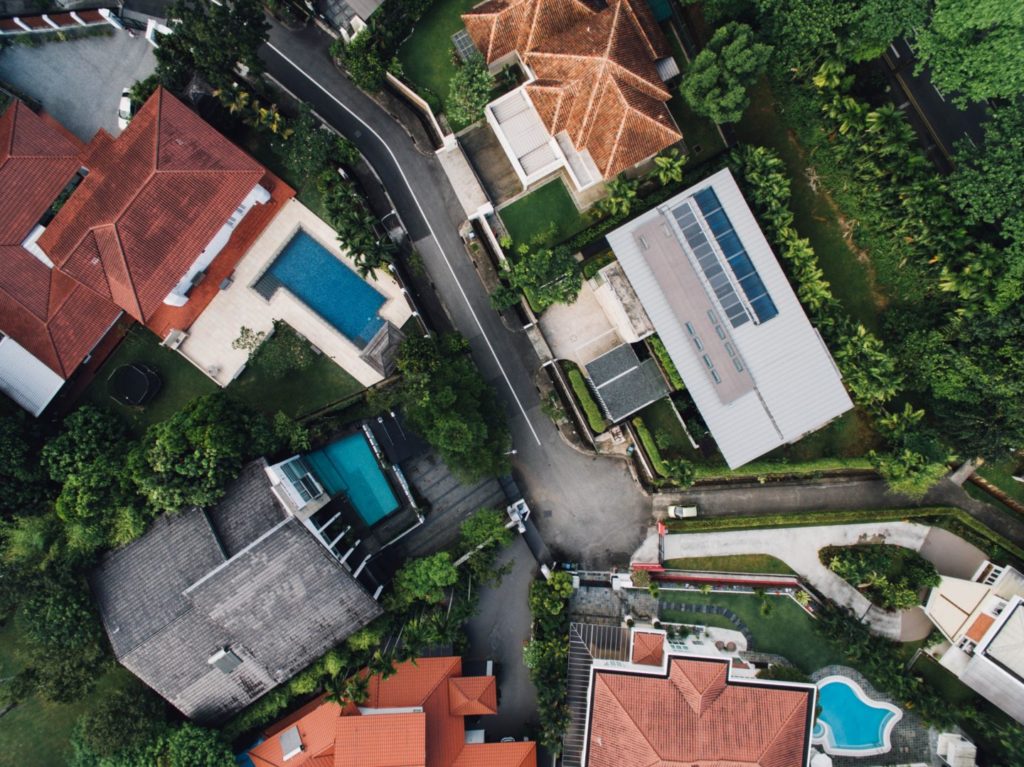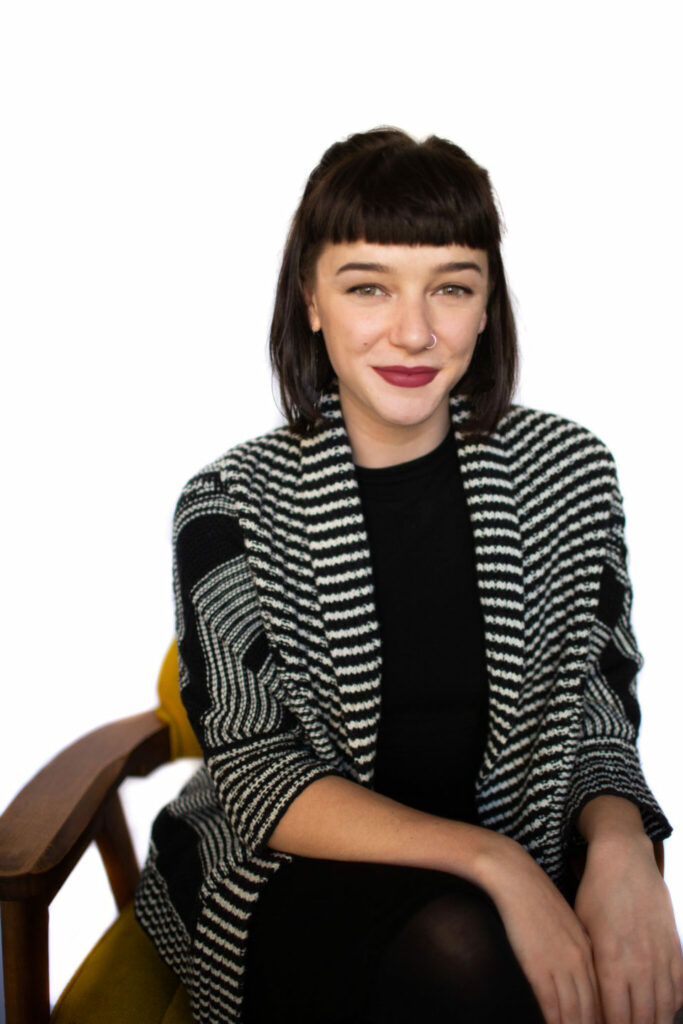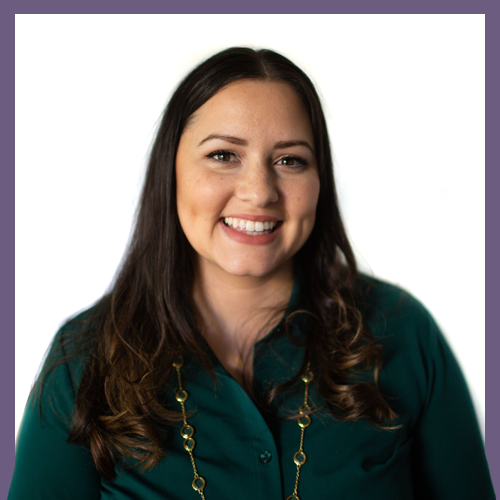ASHLEIGH STARNES | JUNE 28, 2019

In this blog post, we talk to Legal Education and Outreach Coordinator Cynthia Padilla Pearson about our brand new mobile advocacy effort, Standing with Survivors.
You probably know all about the Safe Families Office – a lawyer-staffed, courthouse-based clinic where survivors of intimate partner abuse can seek immediate legal and social assistance.
You’ve also probably heard of our Standing with Our Neighbors™ project, which is a place-based advocacy effort that embeds lawyers and community advocates in Atlanta schools to provide convenient access to legal and social services.
But did you know that we’ve recently taken our services to survivors of intimate partner abuse out of the courthouse and into the community? Below is my conversation with Cynthia Padilla Pearson, the Legal Education and Outreach Coordinator for the Safe and Stable Families Project. She gives us some background on the origins of our new Standing with Survivors program: a mobile advocacy initiative that is bringing resources and education directly to the community.
Give a quick rundown. In a nutshell, what is mobile advocacy?
There are two parts to mobile advocacy. The first is outreach and education. What this looks like is on-site training for law enforcement and some of our community partners that helps them know how to identify and respond to intimate partner abuse, as well as legal remedies for survivors.

Now that we’re mobile, we’re also able to provide direct services to survivors who otherwise couldn’t come into SFO.
The second part is direct services. The circumstances of intimate partner abuse often make it extremely difficult for survivors to quickly and safely make their way to the courthouse. Now that we’re mobile, we’re also able to provide direct services to survivors who otherwise couldn’t come into SFO. They get access to social services, social workers, and referrals to other services that help them regain their safety and stability.
What sort of trainings do you give to law enforcement around intimate partner abuse?
Sometimes I’ll meet with a zone’s detectives and provide information on things like: in the responding officer’s report, what are typical defensive injuries? What clues are there in a 911 caller’s description of events that would indicate something like strangulation? These are things that would need to be added to a police report, versus saying something like, “She sounded out of breath.”
Ligature marks and things that are physical are not necessarily good indicators to rely on exclusively when it comes to abuse. Abusers use all kinds of methods to manipulate and control victims, and they might not always be obvious or visible. Sometimes injuries don’t present immediately.

When police respond, it’s very likely that the abuser is going to claim that they are the victim.
I also sometimes give 30 minute roll call trainings. These are patrol officers. I explain what a TPO is, what you do when you see a TPO, how you identify the respondent, what the report should look like.
It’s really important to help patrol officers understand who is the primary aggressor in an intimate partner abuse situation. When police respond, it’s very likely that the abuser is going to claim that they are the victim. The only way police have traditionally been able to determine who is responsible has been physical injuries. But we know that doesn’t tell the whole story.
So how did this program evolve? Was it over time, or was there a sort of light bulb moment?
There was a sequence of light bulb moments, I would say. When I was in the Safe Families Office, we encountered a lot of clients who would talk about having negative experiences with law enforcement specifically. Clients also said it was difficult for them to find community resources that specifically targeted intimate partner abuse.
With all of these subsequent conversations, we tried to figure out how our organization could fill in the gaps, and be more embedded in our community for easy access to services. And that’s how my job came to be.

The bottom line is that to extend our reach and help more people, we needed a person out in the community – not just in the Safe Families Office – providing education and advocacy for survivors.
I personally had a lot of experience with law enforcement through my prior work before AVLF. I spent 9 years in the Fulton County government working in victim services. So this was a convenient way of understanding police response to intimate partner violence.
The bottom line is that to extend our reach and help more people, we needed a person out in the community – not just in the Safe Families Office – providing education and advocacy for survivors.
And how do you see that intersecting with clients in some of our other programs? Are you seeing any overlap?
The intersection of intimate partner violence exists along all areas of trauma, including homelessness and poverty. There are certainly situations in which someone becomes vulnerable, and in that vulnerability abuse can occur.
We’ve had cross-referrals between the two projects, where someone might be experiencing an eviction, but the cause of the eviction was frequent police calls to that apartment. Or there were a number of violent acts in the apartment. Or there was damage to property. Or maybe a survivor moves around often because of a stalking situation, so their rental history doesn’t look so great.
There are a lot of ways in which power and control dynamics can come to the surface, and a lot of these issues can absolutely impact housing stability. We’re providing education and advocacy around these issues.
What have been some of your biggest obstacles so far?
I want to find a balance between training and outreach. So far I am the only mobile advocate on the team, and I can only be in one place at a time. Both aspects of this program really need 100% of my energy, but I’m only one person.
It’s really just balancing my time to get to everyone and be fully engaged.
What does the future of this program look like?
We’re hoping to have a model similar to Standing with Our Neighbors, so that we’re fully out in the community. We want to have attorneys and social workers on staff. Then you have the legal mind and the social work mind coming together to address all of the survivor’s needs.
It’s more difficult with intimate partner abuse advocacy because anonymity and privacy are really important, so having attorneys and community advocates in one fixed location would be a little too risky for staff and for survivors. So it won’t be exactly like Standing with Our Neighbors. But what better way to engage in education and outreach than to have staff members who are mobile and can go out into the community?
We’re looking for more ways to provide more services beyond the courthouse and really support a survivor’s entire journey to being independent and free from abuse.
Are you following us on social media? Find us @supportavlf.
Cynthia Padilla Pearson
Legal Education & Outreach Coordinator, Safe and Stable Families Project
Cynthia is the Legal Education & Outreach Coordinator for AVLF’s Safe and Stable Families Project. Cynthia connects with our Standing with Our Neighbors program to bring resources and relief to those dealing with intimate partner abuse who haven’t made it to the Safe Families Office. Cynthia identifies and creates new outreach and training opportunities with law enforcement, landlords, schools and other partners in the community.
Cynthia graduated with a B.S. in Criminal Justice from Georgia State University in 2008. She also received an M.S. in Conflict Management from Kennesaw State University in 2011. Cynthia has a strong background assisting survivors as they navigate the courthouse. She has worked in just about every courtroom in Fulton County as a Victim/Witness Advocate in the District Attorney’s Office and serving as a Judicial Case Manager for a Senior Judge. In her spare time, you can find her at a local spin class or reading the latest publications on balanced and restorative justice.

Ashleigh Starnes
Communications Manager
As AVLF’s Interim Communications Manager, Ashleigh works in website content development, social media outreach, and various other forms of communication with our clients, volunteers, and supporters.
Ashleigh is ever-eager to share the remarkable stories of our work, and the impact of AVLF’s staff and volunteers on our community.
Before joining AVLF, Ashleigh was a Fulbright Scholar in Turkey. She holds a BA in English and Linguistics from the University of Georgia. She is also a performance artist, and can occasionally be seen performing movement pieces, poetry, and combinations of the two around Atlanta and beyond.
